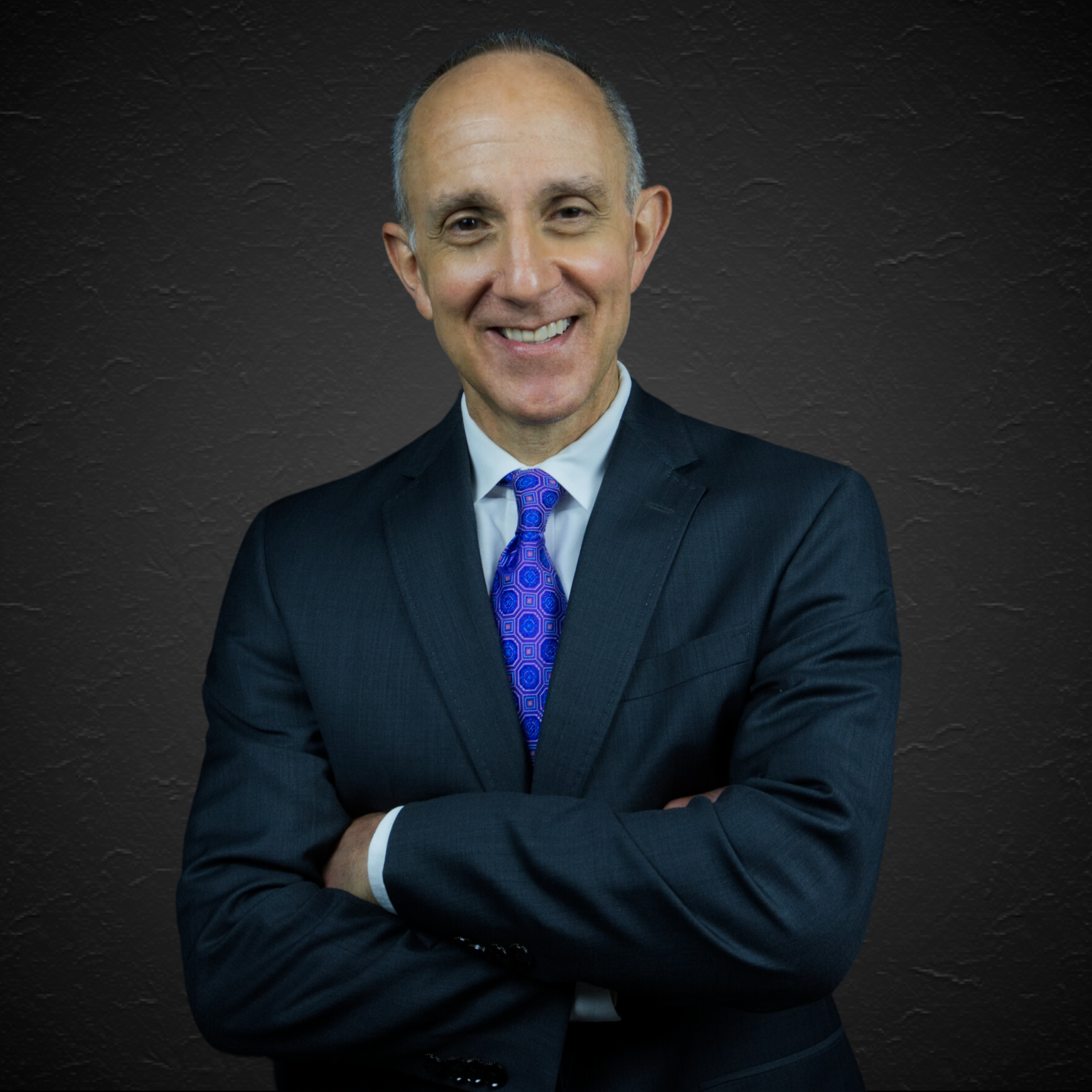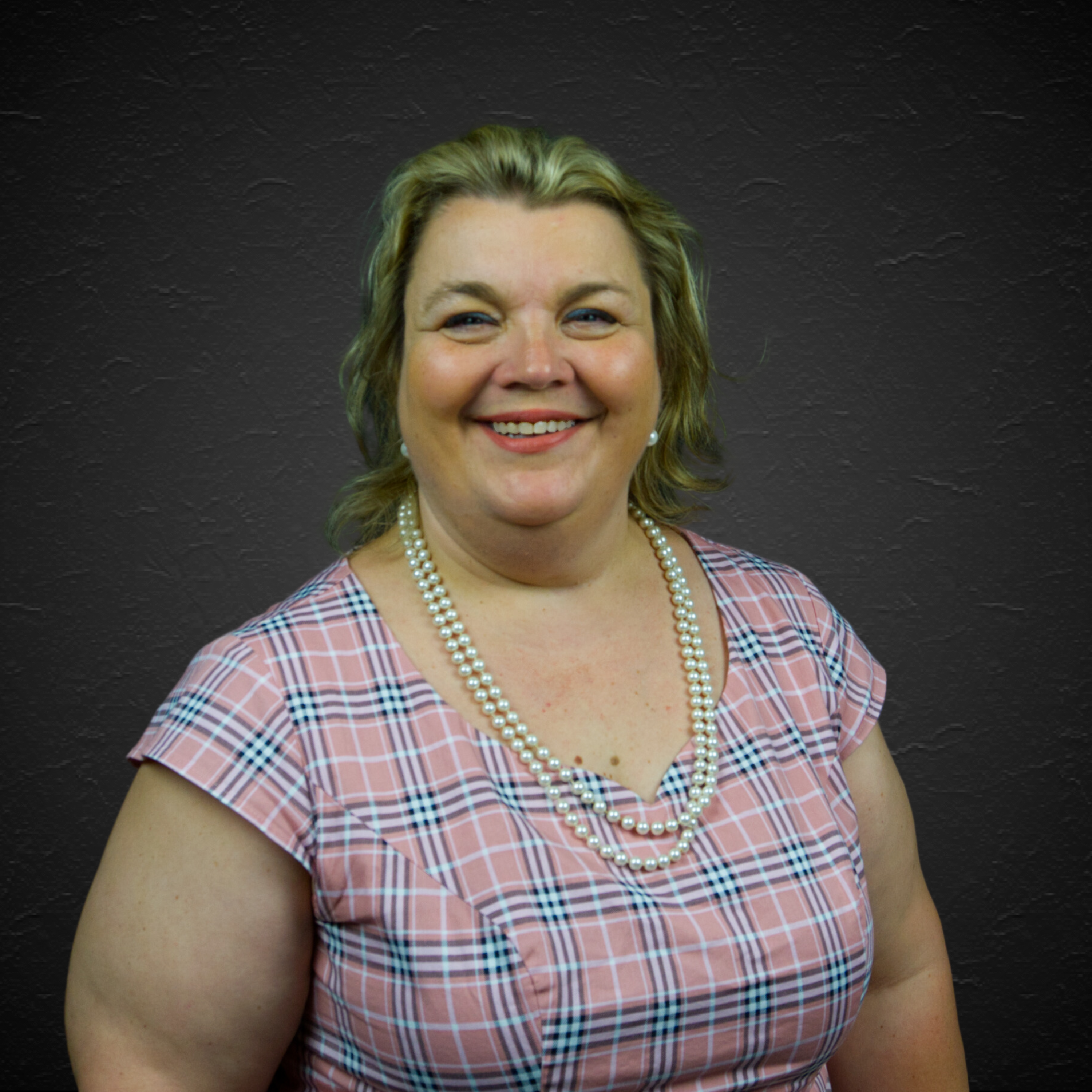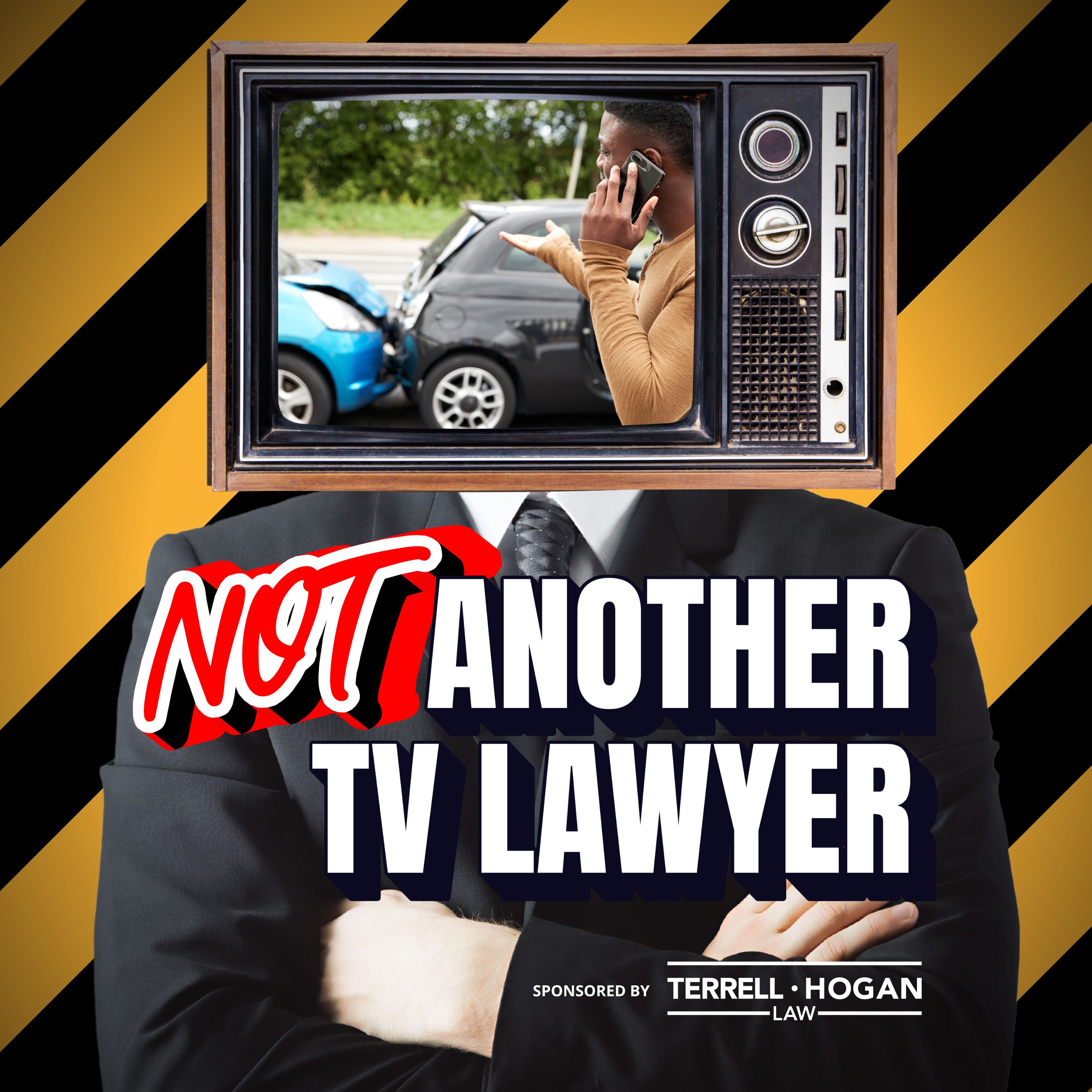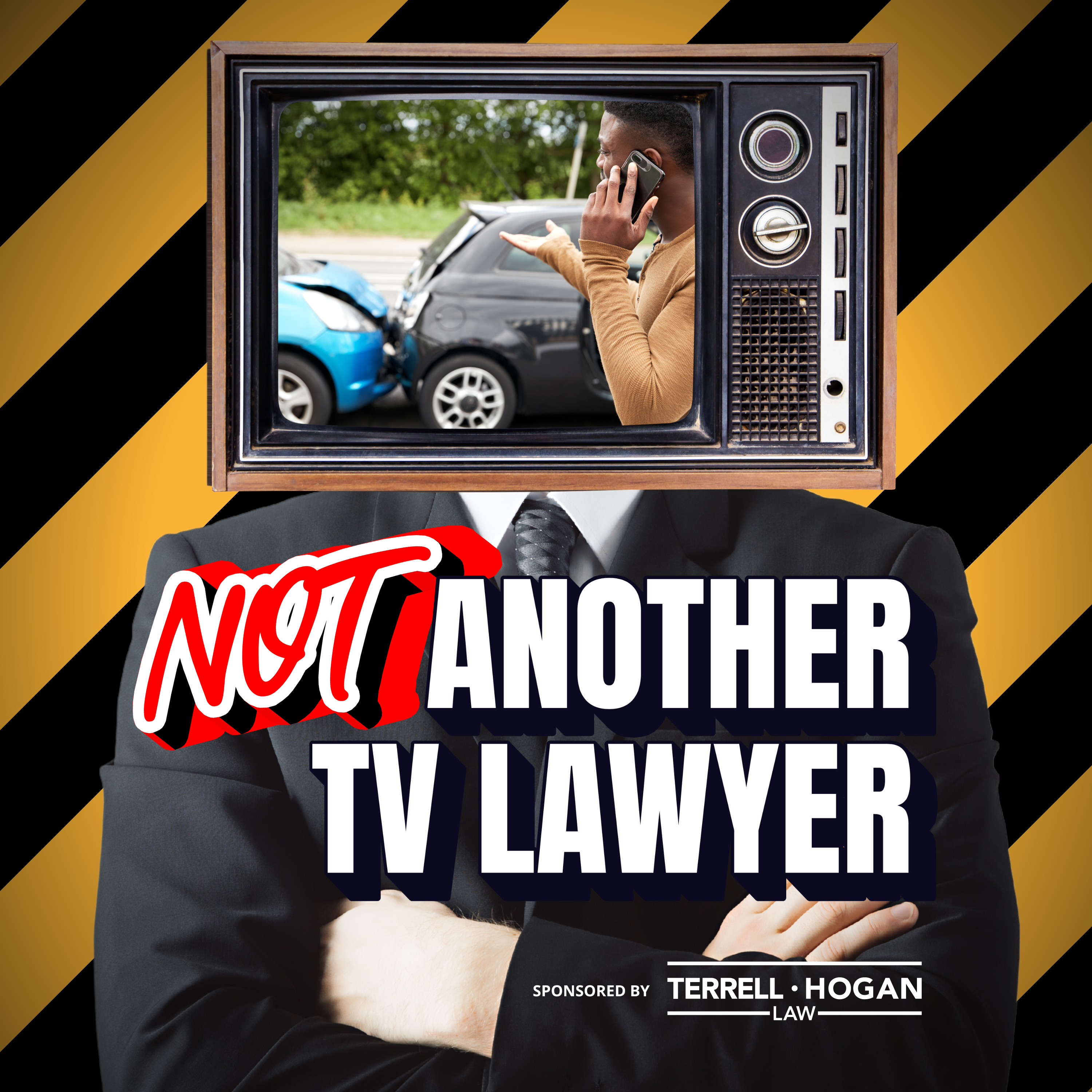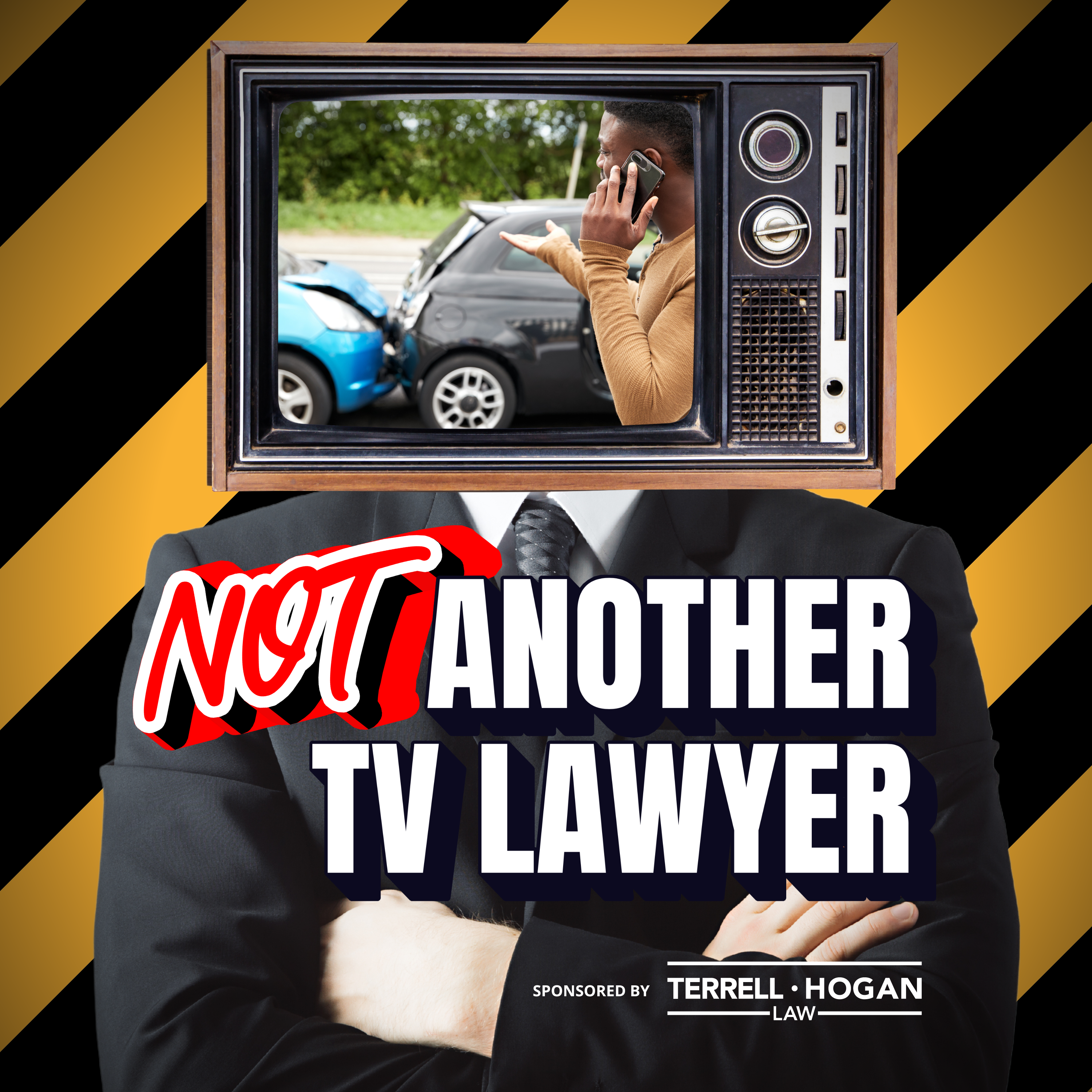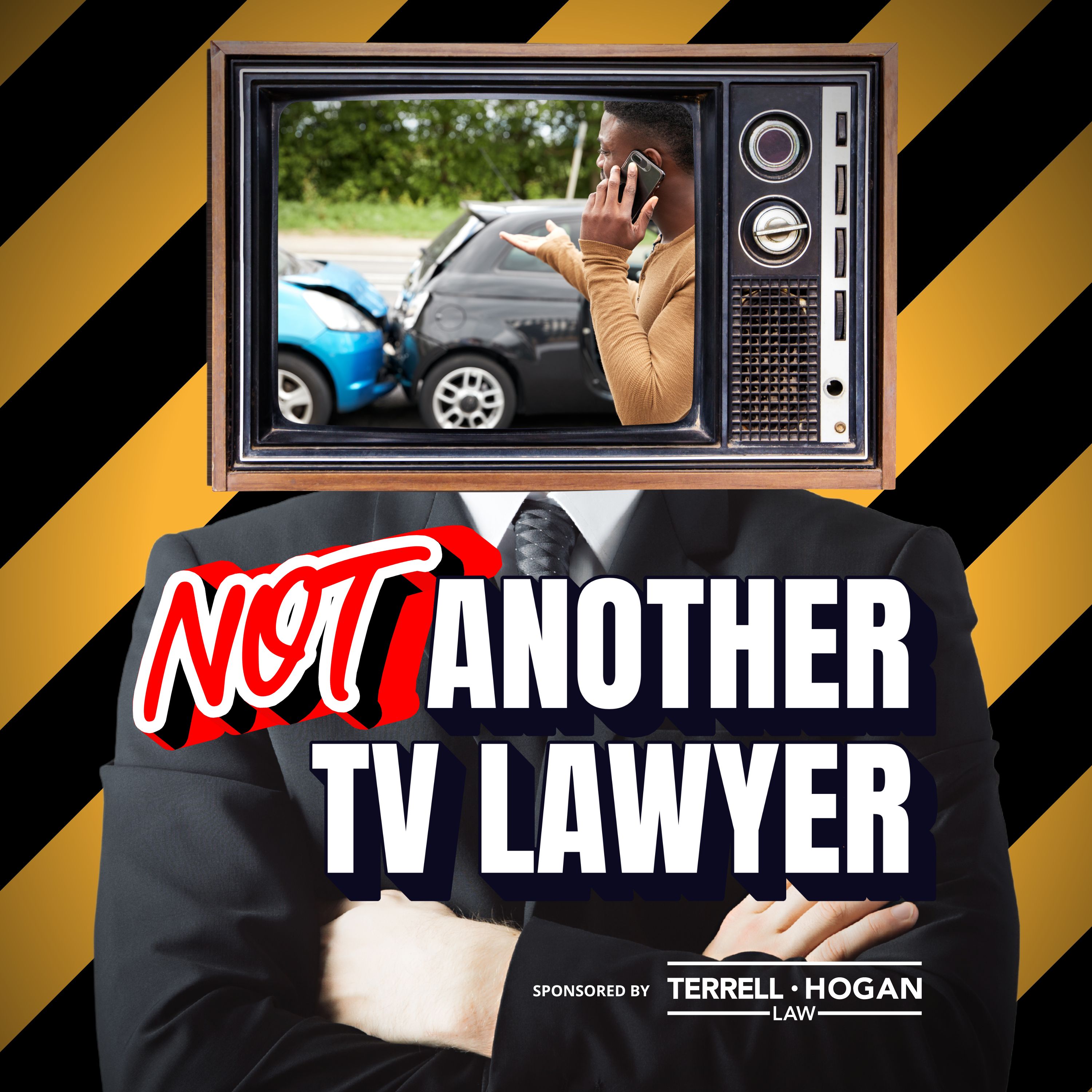Episode Transcript
Welcome to Not Another TV Lawyer. I'm Chris Shaqib. I'm Jessica Hall. And this is a podcast sponsored by the law firm, Terrell Hogan, that's been in Jacksonville for greater than 50 years. And we are very passionate about helping people and personalizing our service to help them get the service they deserve.
Once again, it's, I'm Chris Shakib and this is the podcast, Not Another TV Lawyer. And today we have a special guest, Rita Hanania. If you could introduce yourself. Yeah. Um, I'm Dr. Rita Hanania. I'm a chiropractic physician in Jacksonville. Okay. And what's the name of your practice? It is called, um, Chanatry Chiropractic and Silver Chiropractic.
What we're talking about are people who've been in auto crashes and, you know, we've talked about different things, for instance, insurance and, we've talked to other physicians that treat people, and obviously, you're with practice.
Are you a chiropractic physician? Yes. Your practice, It's undergone some changes recently, is that right? Yes. Tell me about those. Yeah, so, um, the reason for the two names, when you asked what the name of the practice is, is we've grown a lot over the past couple years. Originally our first location was in Arlington and that was the Genetric Chiropractic name.
And then we opened up another location in San Pablo next to Mayo clinic. And then recently about six months ago, we acquired. Silver chiropractic. So we partnered with Dr. Silver, who is a position in town and, you know, grown the group, um, built a practice with the chiropractors within our group and expanded to three different locations now.
So that's a pretty big practice, , group that you have. How many chiropractors are part of the group now? About six total between the three locations. All right. And I understand there's an actual, uh, physical therapist too? Yes. Yeah. And your practice, does a lot of different things.
Um, I, you know, there's chiropractic, uh, massage, you have massage therapists available. Um, and then of course the physical therapy and, , and acupuncture. Tell me about that. Who, who does the acupuncture within the practice? I'm one of the physicians that do it. We have, um, a lot of the chiropractors that are part of our group.
We got certified in acupuncture. After we received our chiropractic doctorate degree, and with that, we were able to get certified, take the Florida board, and be able to implement it in the practice. So we do acupuncture and dry needling. There are two different types of techniques, but acupuncture is a very common word that people use.
easily understand it, but dry needling is also a big part of the practice, too, that, um, the chiropractors at our offices do. Okay. And we've had a, a previous guest who had some experience with dry needling. I've, uh, but remind, can you remind me what, what is dry needling versus any other type of acupuncture that people may be familiar with?
Yeah, it's very similar in terms of the technique. So with both, you're using thin disposable needles to target different areas of the body. Acupuncture is a bit lighter. There's different treatment goals that we focus on, such as migraines or, um, you know, vertigo or hormonal types of conditions that we would work with acupuncture.
And then there's dry needling, which works deeper into the muscle trigger points and helps alleviate a lot of muscle tension, inflammation, and helps with the healing process. So very similar, but the dry needling is a little bit of a deeper technique. It's what we most commonly do in the practice on our patients, but We, um, are able to do both depending on what that patient needs specifically.
how, what's the training like for that? To me that sounds like being trained to do that would be frightening. It kind of is, yes. It's just like learning how to practice chiropractic. You practice on. The people in your class. So with acupuncture, you start from barely knowing how to take the needle out of the, gauge and then you're just kind of working on each other until you get comfortable and get the experience with it to be able to do it on patients.
So the classes that we took. I, um, travel to Daytona for half a year to be able to go every month and practice on like my classmates, learn from the physician that was teaching us and all of that. So it was pretty rigorous, but you have to, funny part is you're practicing on people have no idea what they're doing really.
I can, I mean that, that alone is why I would never go. Become an acupuncturist because I don't want to have to be a pincushion in an acupuncture class. That would uh, that sounds Uh that that sounds like it could be a little scary. Yeah, you're not volunteering for that anytime soon, right? Yeah, but we're supervised by the instructor, but it's still one of those things You don't know unless you practice and that's just how we learn how to do it.
We've talked to chiropractic physicians, , before in this podcast and, what do you, what, in, in your opinion, what, what is the benefit of chiropractic care versus other types of care that someone who's been, for instance, in a, in a car crash, uh, can get, what is, how does that help in a way that other types of care, say going to the ER, um, and, you know, What type of services can you provide them, like how, how would it benefit the client or the patient?
It's very beneficial. Our care is one of the main, important things that sticks us out from different types of specialties is that we're conservative care. And that definitely is becoming more well known and popular among patients. They want to know their different treatment options. They want to know what their conservative options are.
And that is the main, um, hub of the chiropractic practice is that we're conservative care. Um, we give patients a lot of attention during their appointments, especially after their It's not, it's different than going to a hospital, you have, you know, your one appointment and then you go home, they still are in a lot of pain, they still need a lot of attention and What our practice focuses on is we specialize in the acute care treatment after an auto injury.
We're able to see patients multiple times a week and give them the specialized care that they need, help with the pain relief that they're experiencing, and help them with their day to day goals that they Want to achieve what their normal, you know, physical capabilities of improving their mobility and such.
Exactly. Yeah. So, you know, I, I, you know, like just about anybody who lives in the state of Florida, which is a place where everybody has to drive. Yeah. And where there are a lot of crashes, uh, in Florida, I think almost everybody's had the experience with having a, a car crash and had where they've ended up going to the er.
In my experience, I mean, ERs are important. We, we need them. But they treat, they see patients for just about everything, uh, from, , minor emergencies to, you know, full blown trauma one issues. And when I have gone after an auto crash to the ER, the first thing that I can say about it is I end, I remember waiting for hours and hours and hours.
Uh, and then they've finally, someone saw me, I saw the triage nurse, they, uh, And then they took me back and I got x rays and, uh, they did a physical exam and then they gave me a prescription for pain meds, anti inflammatories, and they said, uh, Go see someone else. Is that your understanding of what commonly happens to, to people who've been in car crashes when they go to the ER afterward?
Very much. Yes. That's what a lot of our patients experiences are after they go to the ER and then they see us afterwards. So what is it that you, your practice provides that's different, uh, from what that, that Er experiences for a patient right after a crash? Yeah. So we, give them a treatment plan that we, um.
So that's why we're here today to talk with you and explain to the patient because we're very well Educated on the injuries that they experience after a car accident. We know that it's not just a visit and you're good to go They experience a lot of pain. Their pain levels fluctuate throughout the days after their injuries.
A lot of times It gets worse. And sometimes it doesn't show up right away. It doesn't, no. it may take a day or two for them to realize that they've been injured and you know So, initially When someone is injured, they may not feel like they need to go to the hospital right away. Because, but then, within the next couple of days, they're in pain and, you know, and they need to see somebody.
Yeah, yeah, a lot of people have a lot of adrenaline rush in the beginning, um, stage of right after the car accident, and they don't know what Just happen so they don't feel the pain that they're experiencing and then it either hits them that night or after the next couple of days So at the office, we you know are very well versed on the injuries that they're experiencing we do an evaluation with the patient and then we come up with a Specialized care plan for each patient after their auto injuries in the beginning it's a lot of passive care treatment that we provide meaning that the doctors and The Massage therapists and whatnot are doing most of the work for the patient because they commonly experience the muscle sprain strain injury from their auto accidents and whiplash type injuries and whatnot so that it requires a lot of work on our end for the patient, meaning that we either incorporate massage therapy to help with the various muscle injuries that they've experienced or passive care modalities like muscle stem or muscle stimulation.
Yes. Muscle simulations or, um, mechanical traction or aquatic therapy, just different things to help. Stimulate the healing process for the muscle injury that they experience. And then, of course, the chiropractic care, which we focus on the restrictions in the spine. That patient's experience from the injury and how tight the neck might get or the low back might get from the accident causing headaches or tension in the neck and low back or radiation.
We work with doing adjustments. There's different types of techniques. There's really light ones that we'll start off with and then build our way up as the patient gets stronger to help with range of motion, tension, and restriction. So we're working with them, um, Throughout their treatment course, it takes a lot of work, but we know how much their body needs because of how much it's changing after their injuries.
So going back to the, my ER experience, if I were to go to your office right after a crash, it is. Is it going to be the same where there's a full waiting room and I wait like six or seven hours to be seen by someone? No. That would give me way a lot of stress, having someone wait that long. No, we, you would book an appointment and then we would obviously have you fill out some paperwork and we would do an evaluation at the office that visit.
Your wait time should not be more than, you know, 20 to 30 minutes and we would most likely send out for x rays to make sure we're. Evaluating your injuries in the area, problem areas that you've experienced, and then come up with a treatment plan from there. Okay. Now, uh, going back to the ER again, because I guess I, I'm fixated on the ER lately, and I am fixated on the ER because I've seen it thousands of times with my own clients who've been through the ER after an accident.
And again, look, ERs are very important to our healthcare system, but they're overtaxed and they're also expensive and they're not necessarily a good fit for everybody because of the way they work. But. You know, you, the patients go to the ER, they, wait a lot. They're seen by a nurse. They maybe are seen by an actual physician for five minutes.
And, you know, and then they're given pain medication, usually, uh, an NSAID, a non steroidal anti inflammatory, and then a muscle relaxant. And, and that's it. They're, they're given medication and Sent on their merry way. That's Is that How is that different from what A patient will experience it at your practice.
So we don't prescribe medication. That's not a part of our scope of practice. And you know, we understand that the ER, we do see some patients that go to the ER first and that that was a smart move for them. Like some people, that is the right choice that they made. Other people, um, have experienced similar to you.
And they come and they say, you know, I don't want to take the medication they gave me. Like I'd rather do conservative treatment here at the office, which is what we provide. Okay. Conservative treatment. I heard you say that earlier. There's an election going on and you've got a Republican candidate, you've got a Democratic candidate.
When you say conservative treatment, are you talking about like a Republican business? No, just meaning that we don't prescribe medication. We don't do any injections. Like it's a natural type of treatment. Treatment that we offer. So conservative that you're talking about is not political. No, not at all.
It's about uh, Mostly you're not doing surgery and you're not giving pain medications So, conservative in the sense that it's other types of things. Yes. And the types of things that people can't become addicted to. No. Yeah. Alternative. More natural. Um, yeah. Holistic. Okay. Yeah. Not political. So, we're not getting political.
No, we're not. We're not doing that. I just want Not today. I wanted As polarized as the country has gotten, I don't want to, I wanted to emphasize that when you say conservative treatment, we're not, we're not talking about politics. We're talking about health, which is what not another TV lawyer podcast is really about.
I mean, that's, that's what we're trying to do. Um, I've been in your San Pablo office before and. I'm fascinated with the room, one of the rooms that you have. Is it the, I call it the Zen room, but, uh, what, what is that room used for in the San Pablo location? So it's a beautiful office.
All of our offices, we try to take really great care of them, have a great aesthetic to make all our patients comfortable and feel at home and calm. We don't want to have just your normal doctor's office feel. So the, I appreciate that comment about the San Pablo office. It's a very calming atmosphere. We want patients to feel good when they walk in.
So that main room , we use it right now for different yoga classes to host for people after hours to get community involved in that area. And, we also do some. instructional classes that, we sometimes put on ourselves for people in the community, but our goal actually is to do physical therapy in that room.
So we'll have a physical therapist, some equipment in there, and be able to do physical therapy for our patients in that room. So that's one of the goals that we have in the future. That room just is, to me, is so calming. It is. Uh, that I, I think, physical therapy would be easier in a room like that. But what, what I'm hearing is it sounds like, uh, your practice is, is not just, uh, a medical practice per se or a chiropractic practice, but it's more of a, a community resource for healthcare.
Yeah. Yeah. That's what we are. You know, we do focus on a lot of auto injury treatment and that is one of our main specialties, but we also have, you know, a lot of different. aspects of the practice too. Like we accept major medical insurance. We work with people in the community to build a resource for them and be able to be there for them.
And so we try to do a lot of different things within our practice. Well, and how long has the practice been around? So the Arlington office is the oldest one and that's been around for a while. over 10 years. I don't know the number exactly, but it's been around for over 10 years. Uh, tell me what was your, what's your educational background?
How did you end up becoming a chiropractic physician? What inspired you to do that? Um, I, uh, so I grew up in Jacksonville and I went to Ponte Vedra High School and got my bachelor's degree in public health at the University of North Florida. And then after I graduated college, I. And I wanted to do something in the medical field.
I just didn't know what exactly I wanted to do yet. So I shadowed a lot of different types of physicians and fell in love with chiropractic. It was really as simple as that. I love the treatment that we provide. I love the results and how effective it was for the patients. And it was definitely something that I saw myself doing and I thought it was a great It's unique that you can own your own business and you can also add on different things like the acupuncture or dry needling as a part of your specialty too.
It was pretty broad and just the overall, you know, holistic treatment of it too was something that I really enjoyed. So that caused me to pursue my um, chiropractic degree and I went to school in Port Orange at Palmer in Daytona. Okay. And then Palmer's like one of the larger schools of chiropractic medicine, is my understanding.
Yes. Yeah. It's considered the um, founding school of chiropractic that we have a couple different campuses in the United States. And then the Daytona one is the, One that's closest to here. So it's a, it's a great school. It's a great, I can imagine that if you live in other parts of the country and you're like, I'm going to go to chiropractor school, where am I going to go?
Oh, you know what? They have a beach there. I'm going to go to that one. That really is why a lot of people go. Um, And, uh, Chinatree, are they able to bill health insurance? Yes. Yeah. Okay. Because in an auto accident situation, we have personal injury protection, PIP, that will pay the first 10, 000. But depending on what the patient has done, particularly if they started at the ER, where they'll You know, depending on what kind of tests they order, they may have eaten up a lot of that 10, 000 PIP, um, chiropractic offices, your chiropractic office, are they're able to bill health insurance?
Yes. They bill, you'll bill PIP and then you'll bill health insurance. Yes. Yeah. Yeah. And it's a major benefit that we have because it's a more of an option for patients, especially after their, um, after billing their PIP. And Even after they're done with their auto injury treatment, patients want to stick around and continue care at the office, even after everything is done with their injuries.
And they can still treat. Yeah, they can build their health insurance. And so I'm looking at a list, uh, you take Aetna, Blue Cross Blue Shield, Cigna, Humana, uh, Mayo Care, Medicare, United Healthcare also. And uh, TriWest Optum? Yes, for um, VA. Okay. That's a lot. Yeah. It's really a blessing. We get to see so many different types of patients and it keeps the day fun.
It's, you see a lot of different people, a lot of different cases and it keeps the day exciting. It's not the same every single time. So it's, it's a lot of fun. That's how we feel about our job. Yeah. It's not the same thing every day. Yeah. It's a lot of fun. You never know what you're getting yourself into.
We get to meet lots of different people and we get to help lots of different people and It's never dull. Well, Jessica goes out of her way to make sure my job is never dull, that there's always something different. Uh, I'm highly scheduled and required to do many different things. Uh, so, but we really appreciate you coming and, uh, uh, we hope that, uh, when people hear about you, they'll come see you.
Yeah, of course. Thank you for having me. Um, so if they want to come see you, you have three locations. Do you want to tell us where the, you mentioned San Pablo, but do you want to give us the addresses of where your locations are? So we have our Arlington location, which is right in front of Jacksonville university, and then there's the San Pablo location, which is close to Mayo, right?
Yeah. Um, right in front of the Mayo clinic emergency room. And then, um, The Riverside office, which is around the five points area. I can give you the phone number for the Riverside office. That's my main location that I'm at and it's 904 634 0805 and we'll be able to coordinate. you know, care at that office or help out anywhere that's surrounding offices too, if needed.
Okay. Well, Rita Hanania with Chinatree Silver Chiropractic. We really appreciate you coming and being a guest on Not Another TV Lawyer. Thank you. I appreciate it. Thank you for having me.
Thanks again for listening to Not Another TV Lawyer. We hope that you will tune in to the next episode. Not Another TV Lawyer is sponsored by my law firm, Terrell Hogan Law. Terrell Hogan represents people in a lot of different areas of injury type law, as well as business claims throughout the state of Florida.
We represent people in auto accidents, trip and falls, people who have been exposed to asbestos and developed conditions related to that. Victims of medical negligence, victims of defective products, including medical devices and pharmaceuticals. Please feel free to look us up at www. terrelhogan. com. We look forward to hearing and being with you soon.
